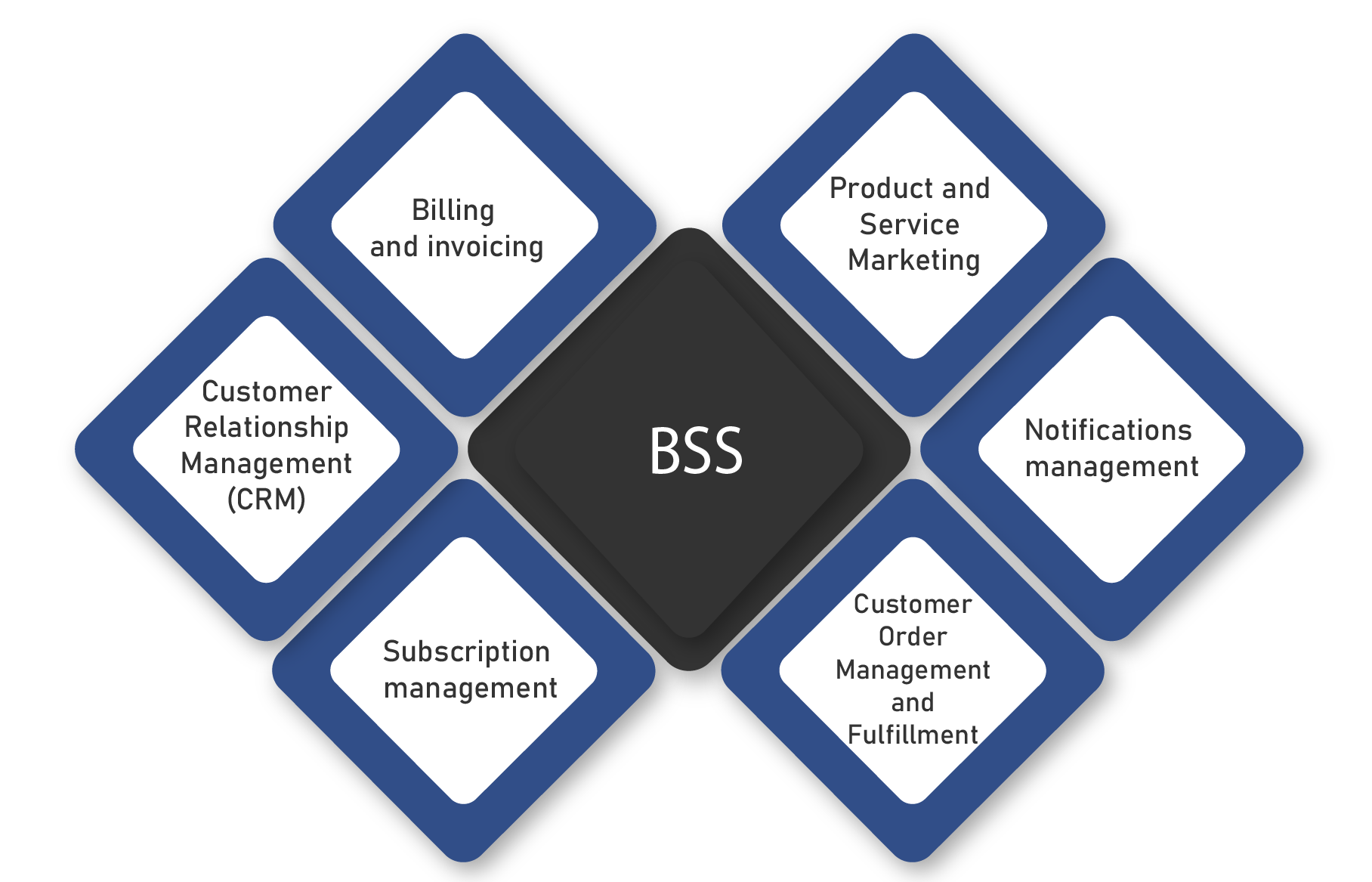BSS Telecom|Telecom BSS|What is BSS in Telecom
BSS Telecom / BSS in Telecom / Telecom BSS (Business Support Systems) are a collection of software applications that help telecom providers in managing and optimizing their customer administration processes.
It doubles as an interface between telecom service providers and their customers.
BSS is essential for maintaining good client connections, accurately invoicing and billing, handling transactions, and guaranteeing that business operations run smoothly. Customer Relationship Management (CRM), Billing and Invoicing Systems, Order Management Systems, and Revenue Management Systems are important parts of BSS.
It aids in the business activities of the organization, instead of the technology side.
Use cases of BSS Telecom:

- Customer Relationship Management(CRM)
Used to manage customer information, developing and maintaining relationships through CRM, and gaining insights into customer behavior, to help personalize customer experience and manage support.
- Subscription Management
Subscription Management helps manage the periodic renewal and billing of specific products and services.
- Billing and Invoicing
Includes accounts receivable, billing procedures, service level agreements (SLAs), customer notifications, and collections administration. This section guarantees that earnings are accurately recorded and optimized.
- Customer Order Management and Fulfilment
Place, edit, manage orders and retain full control on all processes all the way until the order fulfillment.
- Notifications Management
Manages notifications regarding the subscriptions, payment, invoices or any other custom notifications added by the client.
- Product and Service Marketing
BSS marketing aims to raise awareness, generate leads, and drive sales by effectively communicating the value proposition of the product and service solutions and work towards securing strong relationships with customers.
Benefits of BSS Mediation:
- Operational Efficiency: BSS processes reduce human errors, reduce operational costs and increase overall productivity.
- Enhanced Customer Experience: BSS enables the company to provide personalized service, efficient order processing and accurate billing, resulting in improved customer satisfaction.
- Data Driven Decision Making: BSS generates insights through data analytics, enabling the organization to make informed decisions and plan strategically.
- Revenue Growth: Effective revenue management tools help identify opportunities for revenue growth, such as optimizing pricing strategies and offering customized services.
Conclusion:
Overall, the implementation of Business Support Systems enables the telecommunications company to deliver superior customer experience, maximize revenue growth and maintain a competitive edge in the market.
